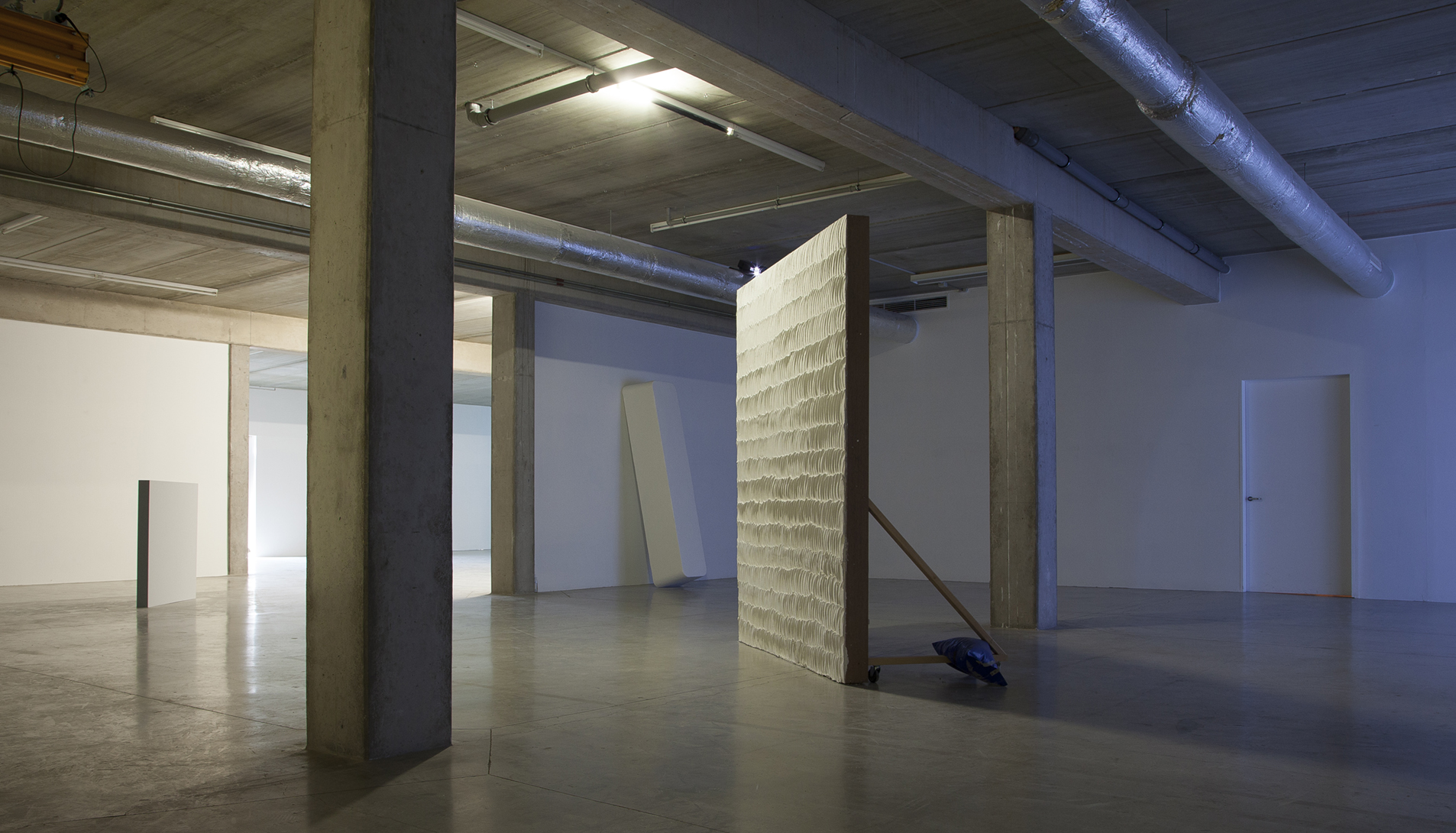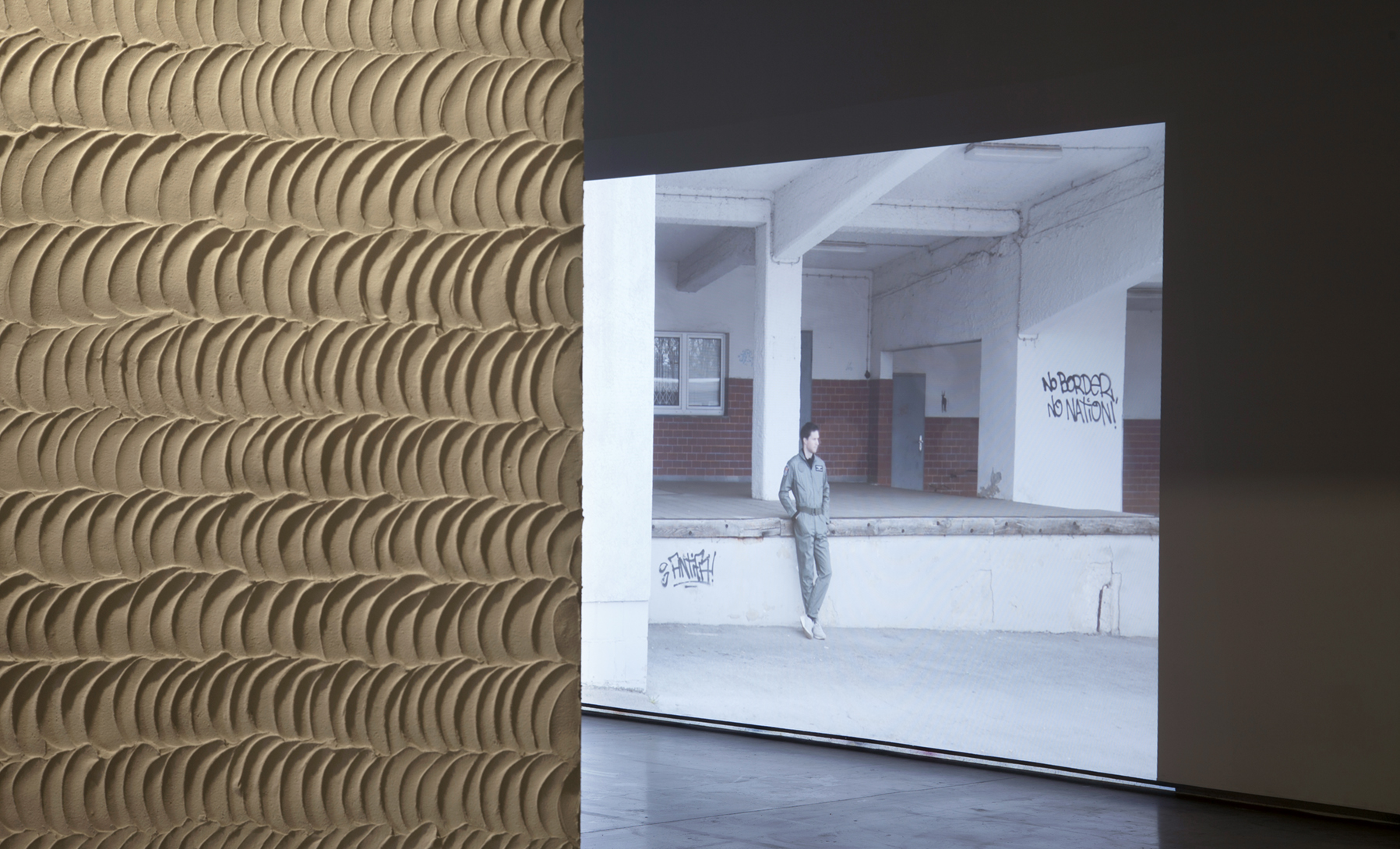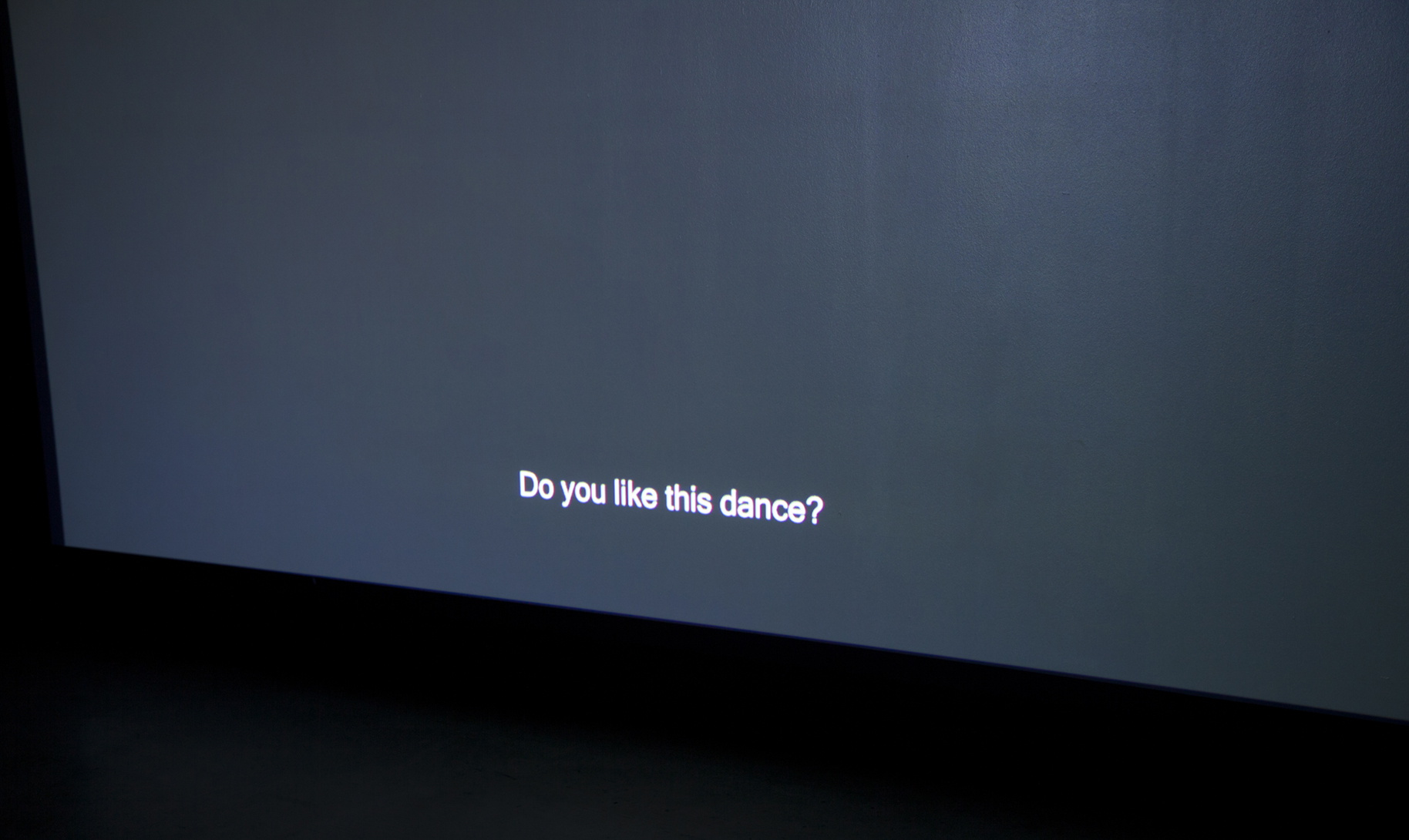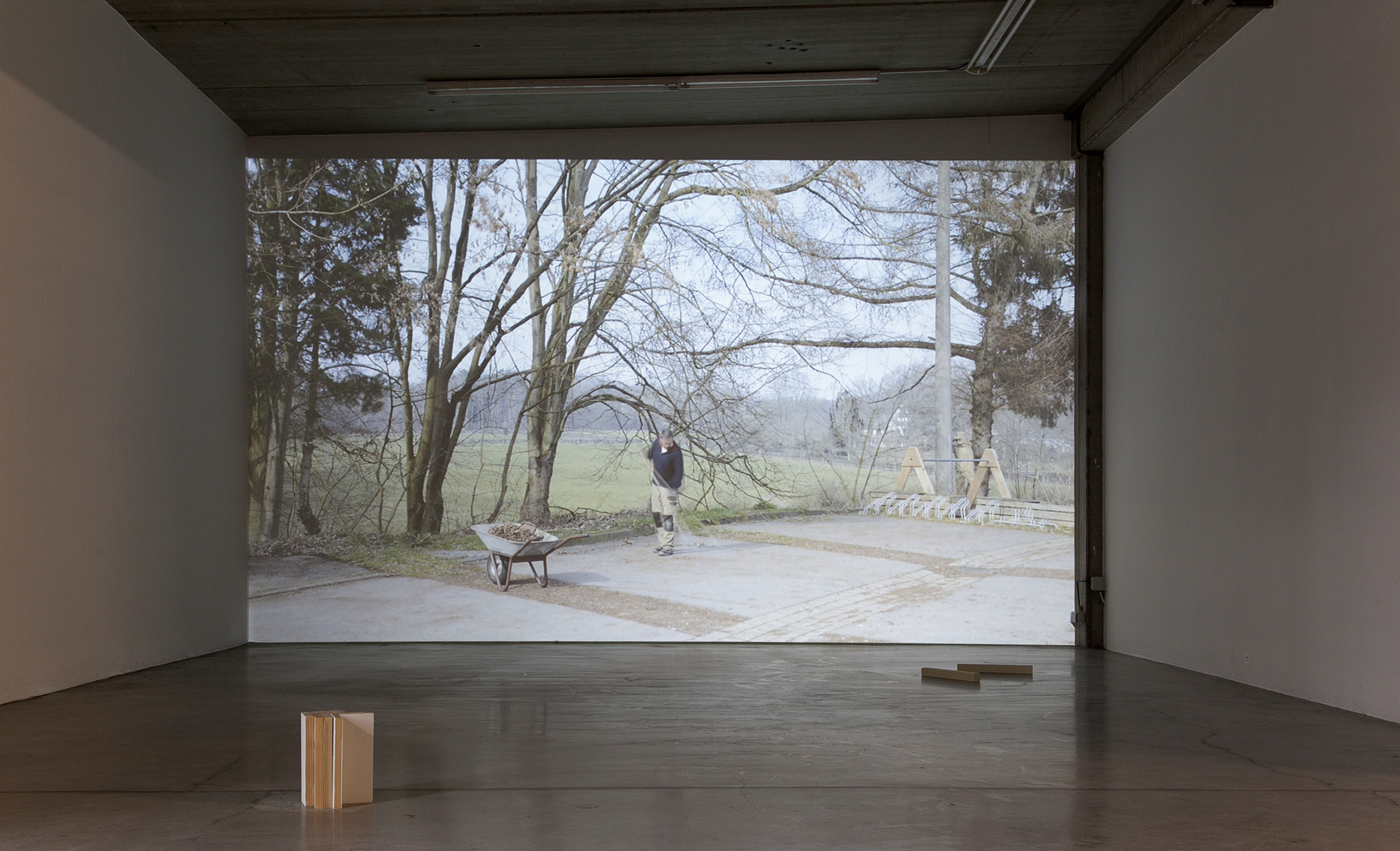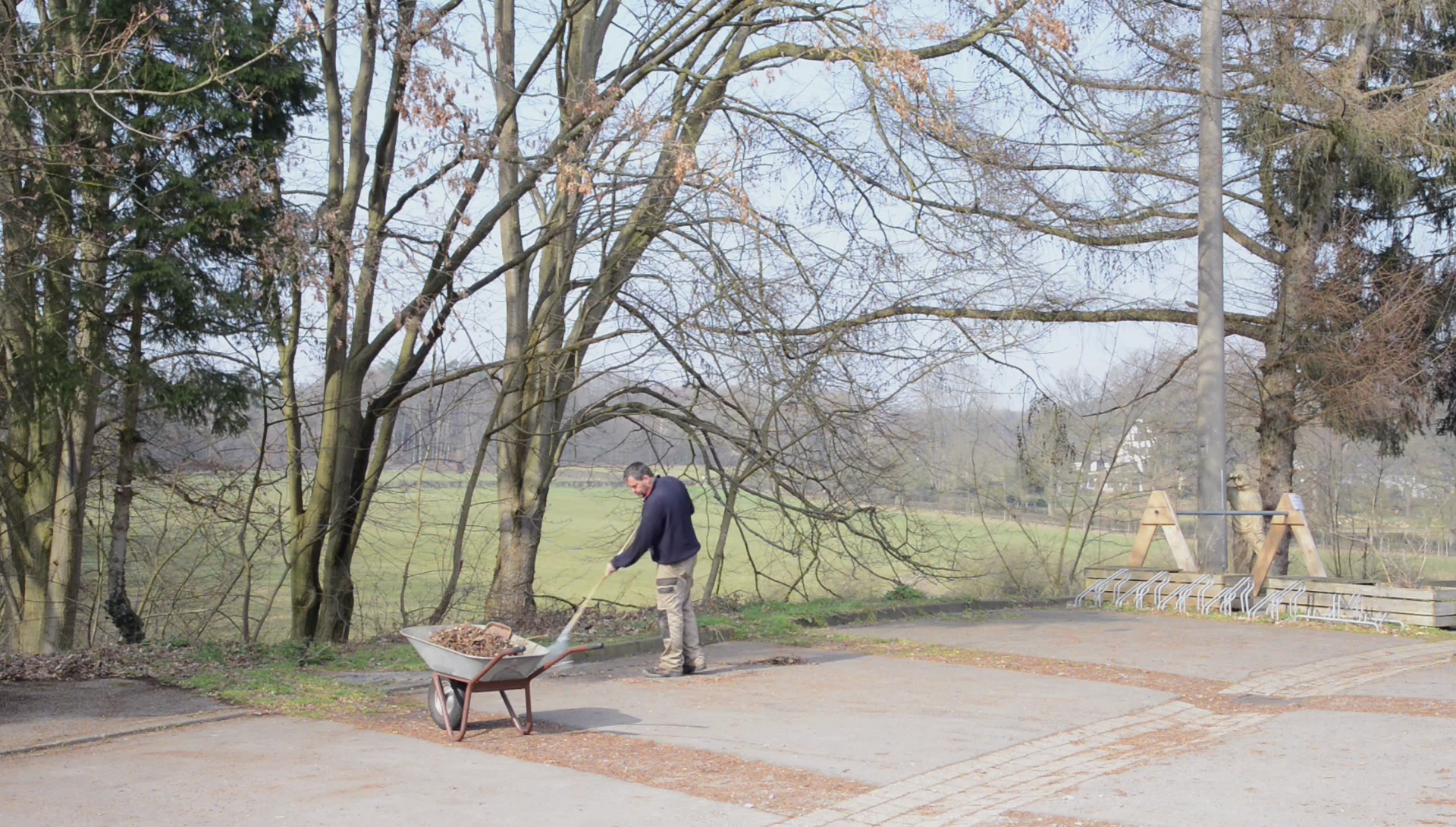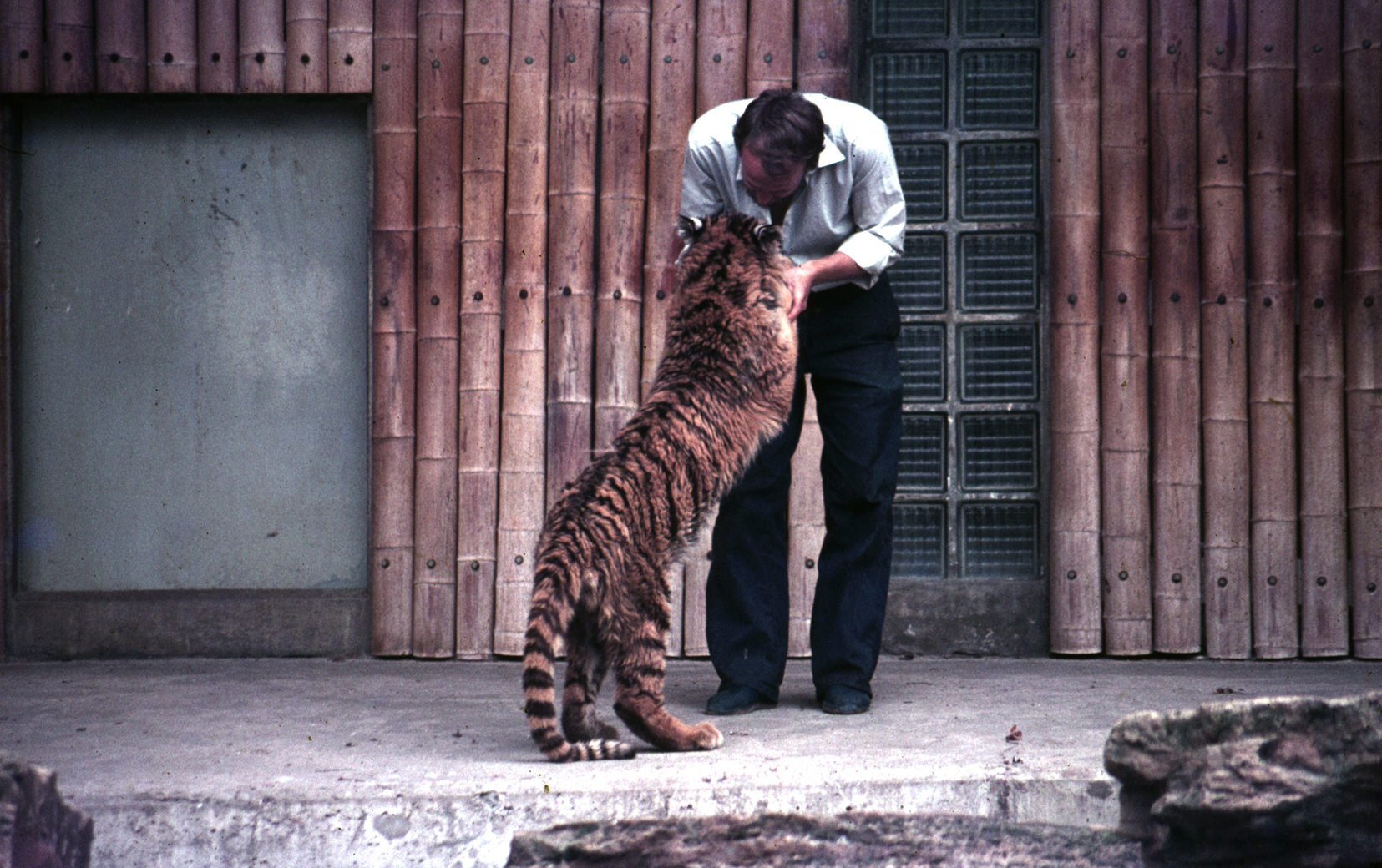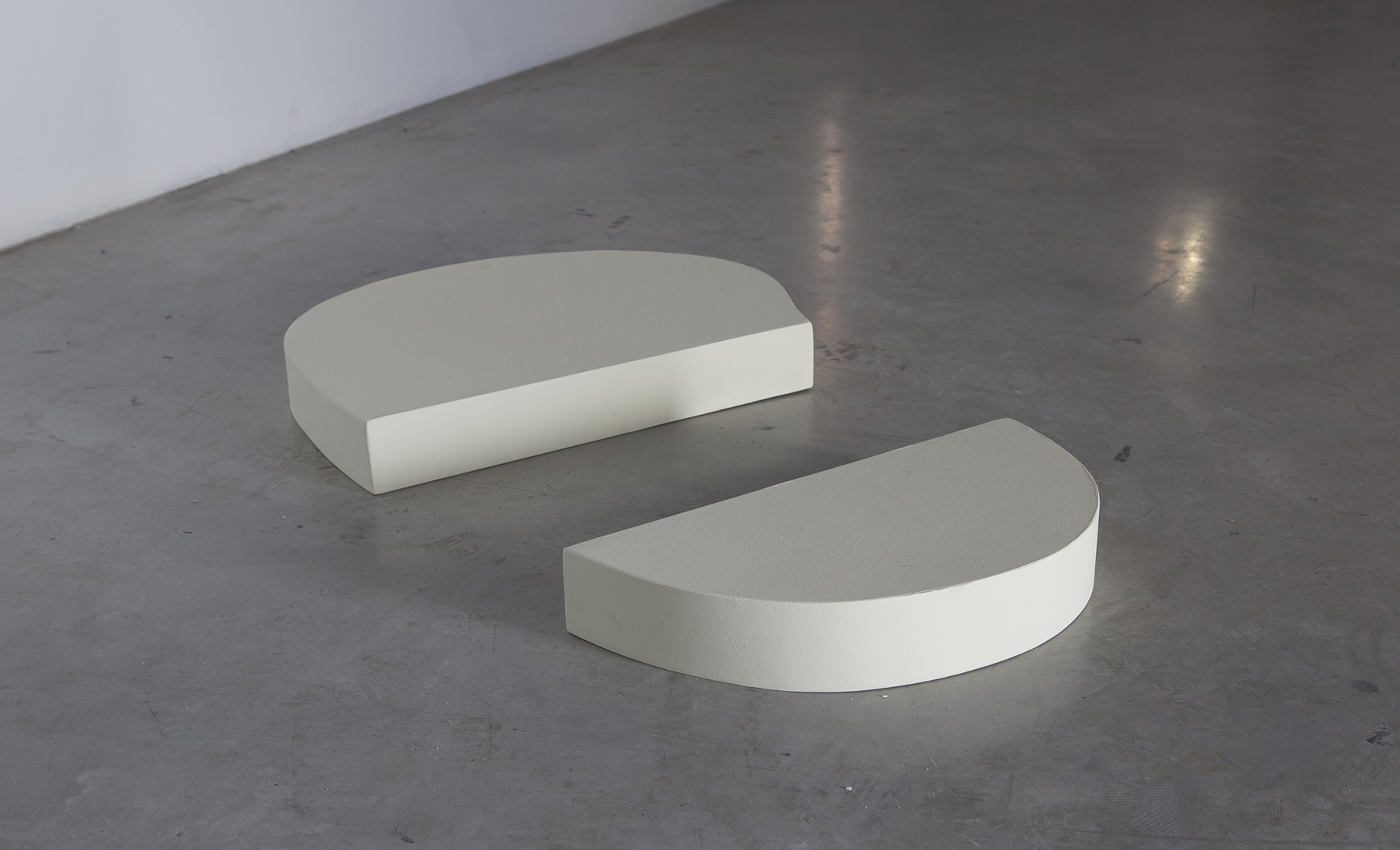And then we take it from here
After being invited for a solo exhibition in Eupen – capital of the German- speaking Community of Belgium – I first wanted to familiarise myself with the site of Eupen; for days on end I photographed and filmed and collected objects. This material was brought together in an exhibition which showed a contemporary form of melancholy related to fatigue: a state of waiting, being stuck and a claustrophobic feeling emanating from authority structures.
And then we take it from there
Solo exhibition
IKOB, Museum of Contemporary Art, Eupen (BE)
10.04.19 – 16.06.19
A Foreword
The rain which must have fallen recently upon the park has enveloped pathways and trees in a refreshing moistness. The wet leaves and paths glimmer obscurely. The atmosphere conveyed by this scene thereby appears on the one hand clear and clean — even somewhat chill — but on the other hand also slightly menacing. The eyes of the viewers follow for a good while a woman. Besides the bright red shoes, it is noticeable that her naked legs stand in contrast to the chill rain — which seems to have caught her by surprise. Thoughts such as these emerge out of nowhere and settle over the sequences of the film, in which nothing really seems to happen. But scarcely has the woman stepped onto a tiny bridge when something unexpected occurs. She jerks to a halt, turns around and, with her eyes cast down, runs past the camera which, just as shocked as the viewers of the film, simply stands still.
Chloé Op de Beeck, the artist who captured these scenes in her film Moments (16), is a master of quiet observation. She is able to reverse an anticipated course of events or even to disrupt it entirely, because in her work the unexpected always goes hand in hand with the customary. Her artistic attitude is utterly unterrified, because with extreme self-confidence she ignores the supreme demand for effectively getting attention — namely the law of excess, of painful tension and wild action — and clearly prefers a leisurely narrative pace. When she directs a special focus towards the trivial moments of everyday life, she challenges our capacity for attentiveness and restores to us freedoms which we do not possess in a linear film. With her, there is no beginning and no end. Entry is possible at any time and from that point, it is possible to decide freely where one will proceed next: ‘And then we take it from here.’ What do we take further? Perhaps the narrative? Or the tension which Op de Beeck, despite or possibly because of the missing filmic stimulations, has built up so adroitly?
In her solo exhibition at IKOB, Chloé Op de Beeck manages in an impressive manner to condense filmed reality into built-up actuality and to translate the poetry of space first into images and then back into space. Her works are accordingly characterised by a profound ambiguity which constantly alternates between objectivity and subjectivity. Everything is in a flow with her: everyday life and routine, expectancy and stillness constitute both the time-frame and the tonal key of her art. Everything must subordinate itself to this perspective — people, animals, and even the landscape itself. Ultimately it is these real and quotidian situations of waiting, of stillness and non-activity, which provide the installations with their powerful impact and simultaneously invalidate hierarchies.
For this exhibition, Chloé Op de Beeck first familiarised herself with the site of Eupen; for days on end, she photographed and filmed, developed ideas how she could first give visual expression to her findings and then bring them into the exhibition space — as an elaborate narration of condensed time-space constellations. This blurring of the borders between filmic and actual experience, the cancellation of the split between film and space, numbers among the most dazzling experiences she has to the viewer.
Frank-Thorsten Moll, 2019




